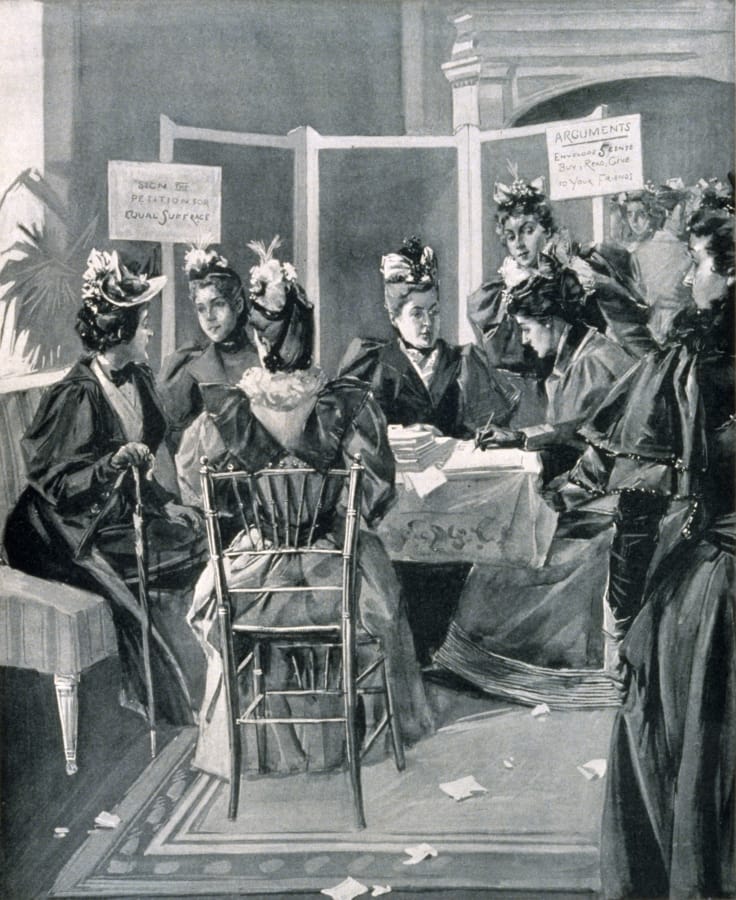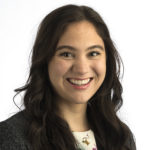The League of Women Voters of Clark County turns 100 this year, but the organization is anything but history.
In fact, membership in the organization has tripled since the last presidential election. Over the last few years, the local chapter of the League has gone from about 30 members to more than 100. It’s a spike that Lunell Haught, president of the League of Women Voters of Washington State, said isn’t unique to the county.
“We’re seeing it nationwide, and we are seeing it around the state,” Haught said. “I think people are getting more interested in what’s happening in their communities.”
At the national level, leaders of the suffrage movement founded the League of Women Voters in 1920, just after the 19th Amendment granted women the right to vote. Since then, the organization’s numbers and participation requirements have fluctuated in communities across the country.
Some things, however, don’t change. A century later, the League of Women Voters remains stoutly, stringently nonpartisan. And in an era of 20-second hot takes and extreme partisanship, the organization’s approach to problem-solving remains, in its own way, radical.
Consensus approach
According to Haught, the League of Women Voters has two branches: the education arm that works to keep voters informed about issues in their communities, and the advocacy arm that lobbies for positions agreed upon by members through the consensus model.
“People say, the devil is in the details, and the League works at the detail level. How is this actually going to work on the ground?” Haught said. “We so value the educated voter.”
Taking a formal position on a topic can take years from start to finish. The process usually starts organically, Haught said. Individual members within community chapters will seek out more information on a topic relevant to that community, a subject that can range from public transportation projects to civics education in schools. Those members then embark on an arduous process to study that topic, evaluating pros and cons of each position, soliciting community interviews and compiling expert opinions.
“There is a lot of local autonomy,” Haught said. “We have some leagues that are absolutely all about voter education, and we have some leagues that are all about homelesssness, and we have some leagues that are all about climate change.”
When it’s finally time to stake a position on that topic, the League members use a consensus approach. They don’t hold a vote. They keep massaging and tweaking their position until every single member agrees.
“It is a time-consuming, messy process with huge integrity,” Haught said.
That integrity is what first drew Judie Stanton, now president of the League of Women Voters of Clark County, to the organization in the late 1970s.
Stanton first came to know the Clark County chapter of the League as the “sewer ladies,” she said. Her original brush with the League stemmed from members’ deep dive into whether sewers or septic tanks were the best form of wastewater storage.
“Especially for Vancouver, that was the interest at the time — is it OK to keep septic tanks in Vancouver?” Stanton said. “That’s how I first heard about them.”
She watched the thorough, deliberate way that the League of Women Voters approached the topic. Stanton, who had spent her childhood watching her mother write letters to her city council, said she “couldn’t resist.”
“The consensus process, where you go through trying to find agreement with all these people who have different opinions, to me, was enticing,” Stanton said.
While the League of Women Voters isn’t explicitly political, it laid the groundwork for Stanton’s political ambitions, providing an immersive background in holding public office. At the time, Stanton said, she had no intention of launching campaigns for office. But shortly after she joined, she took the ideas and connections she’d forged in the League and went on to serve on the Vancouver School Board, the Fire District 5 Board and the Clark County Commission.
“You can learn a lot. I think it’s helpful to understand the system, how laws are made, how codes are written,” Stanton said.
Renewed enthusiasm
Around 2000, membership in the local League had started to lag, Stanton said. The members — a lot of them working mothers, trying to balance demands on their time — had fewer hours for volunteer work. At one point, she said, the group almost disbanded. It held on with support from the state chapter.
But over the last few years, a new gust of enthusiasm is sweeping the civic-minded, especially among women.
Sally Carpenter Hale, who joined the Clark County League early this year, said she’s seen firsthand that new surge of political urgency.
“My sense is that the 2016 election galvanized a lot of people,” Carpenter Hale said. “It coincided with the Women’s March. There’s a lot of movements that started around 2017, early 2017. I think a lot of people just felt moved to get involved in some way or another.”
Carpenter Hale spent 15 years as a news editor, calling elections for the Associated Press in Portland. When she retired, she said, she knew she wanted to stay involved with the electoral process, but she couldn’t turn off the part of her brain that rejected partisanship.
The League, she said, “bends over backwards” to avoid any political favoritism.
“The nonpartisan nature of the group really appealed to me. Being a journalist, I’ve never been a member of a political party,” Carpenter Hale said. “It’s hard to kind of divorce yourself from that objective, independent mindset.”
She has helped write questions for the League of Women Voters’ candidate forums, one of the more visible, community-facing series of events that helps voters get to know the candidates running for office in their jurisdictions. She also plans to serve as an election observer.
“It’s a terrific group of smart, dedicated people who are passionate about preserving our democracy,” Carpenter Hale said.
Today, Stanton said, the act of hashing out issues together — in a room of educated people, disagreeing in good faith — helps turn off the partisan noise that sucks so much air out of political spaces. It’s a haven, but it’s also deeply practical, she added, because League members deal in concrete issues that directly impact their communities.
“I think the organization is every bit as relevant today as it was 100 years ago when it was founded,” Carpenter Hale said.




